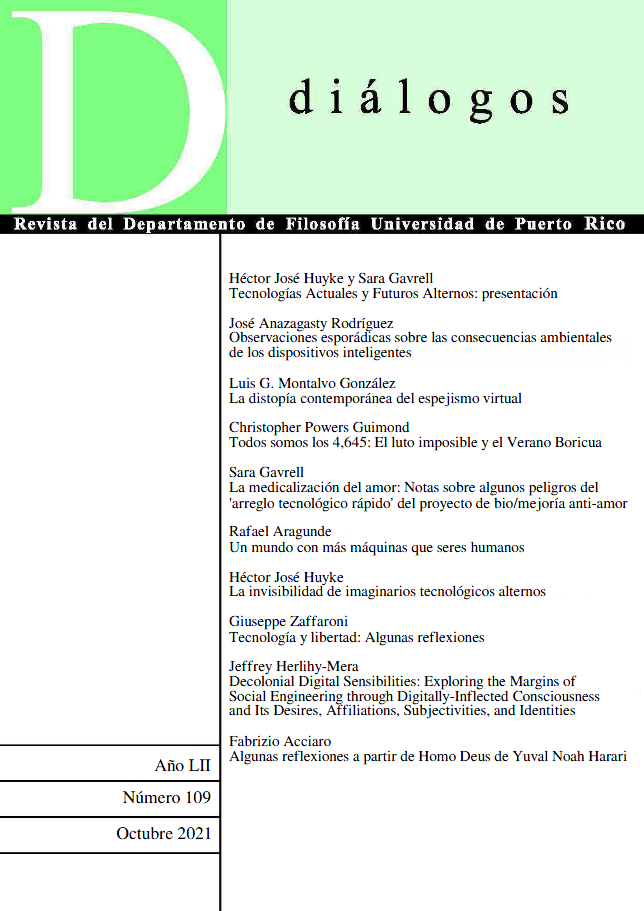Abstract
An important part of e-colonial theory asks questions about how digital structures attempt to create dependency on electronic and online communicative devices, for information and social interaction. In the same way that transportation infrastructure and unwalkable cities forced people into automobiles in the twentieth century, digitized conditions now attempt to bind freedom and community action with specific behavior, material consumption, and the use of physical apparatus that access digital spaces. The passive enculturation (first-culture-learning) that occurs through constant contact with these e-spaces, and how these platforms are instruments of cultural and social engineering, are important axes of critique amid hyperdigitization. My argument examines the embodied nature of digitized cognition and the neoliberal social engineering projects, posing solutions that move toward moderating the severity and human costs of the digital tide.

This work is licensed under a Creative Commons Attribution-NonCommercial 4.0 International License.

